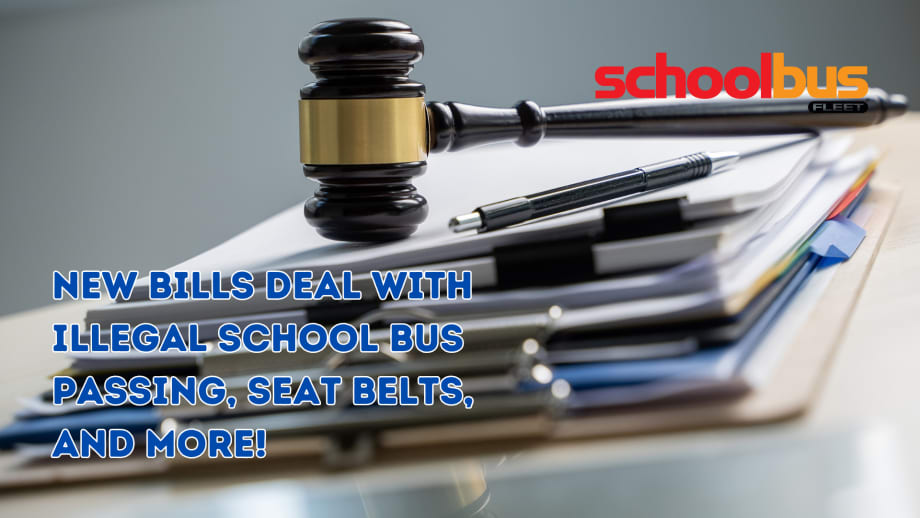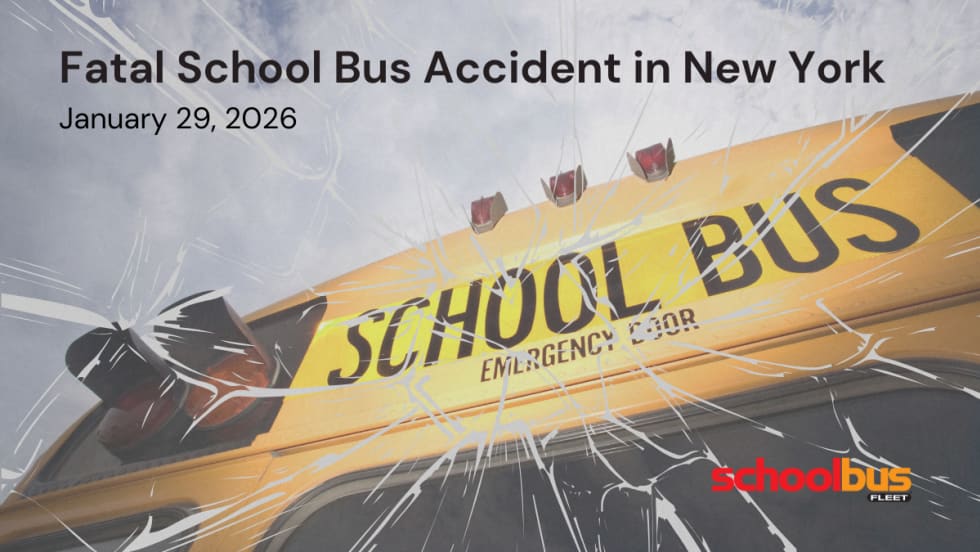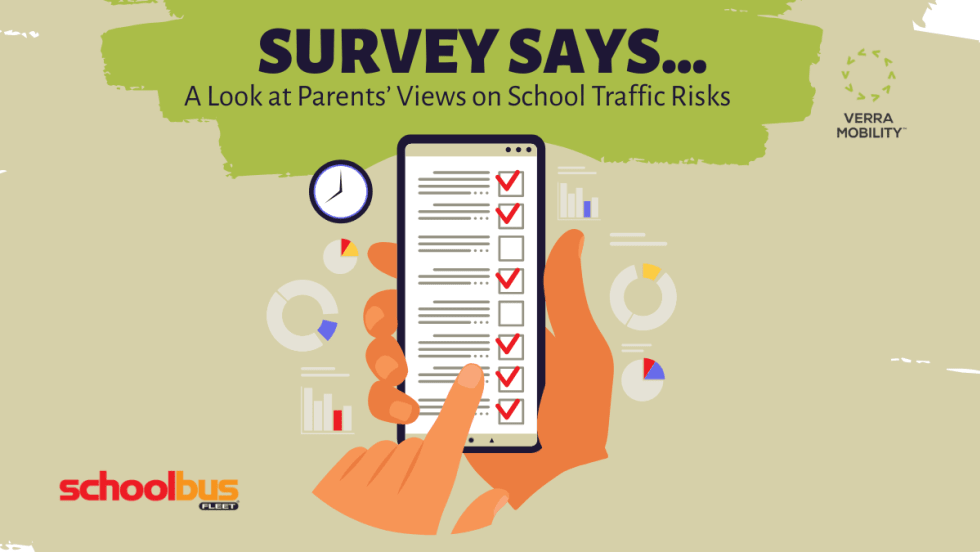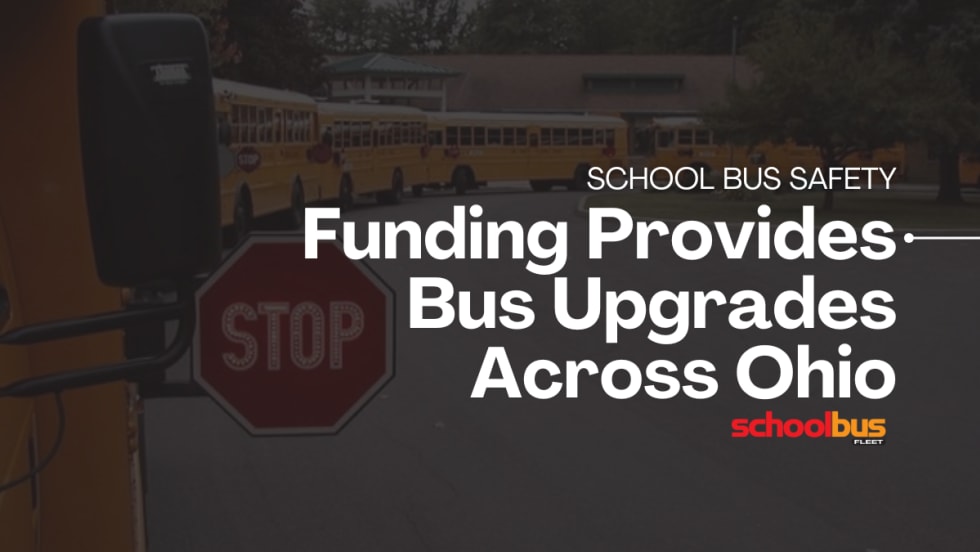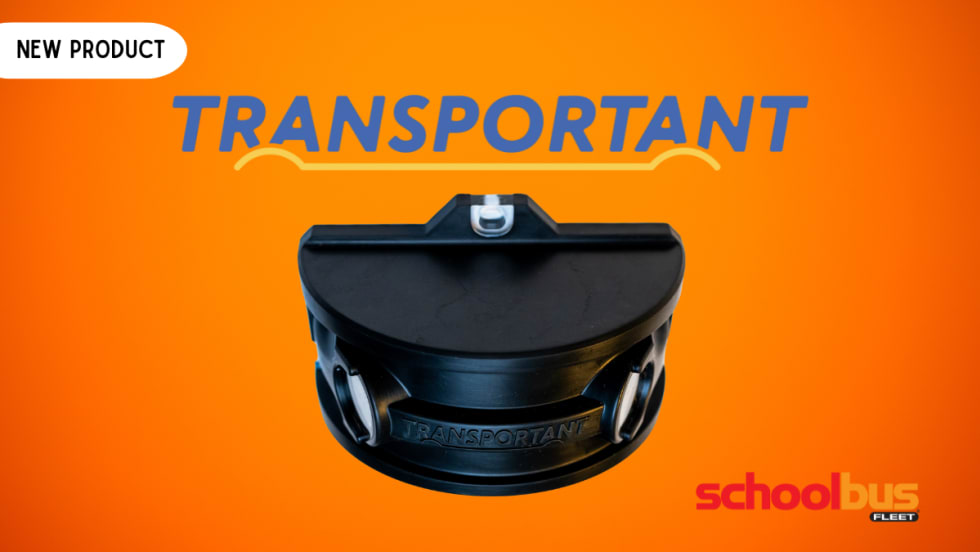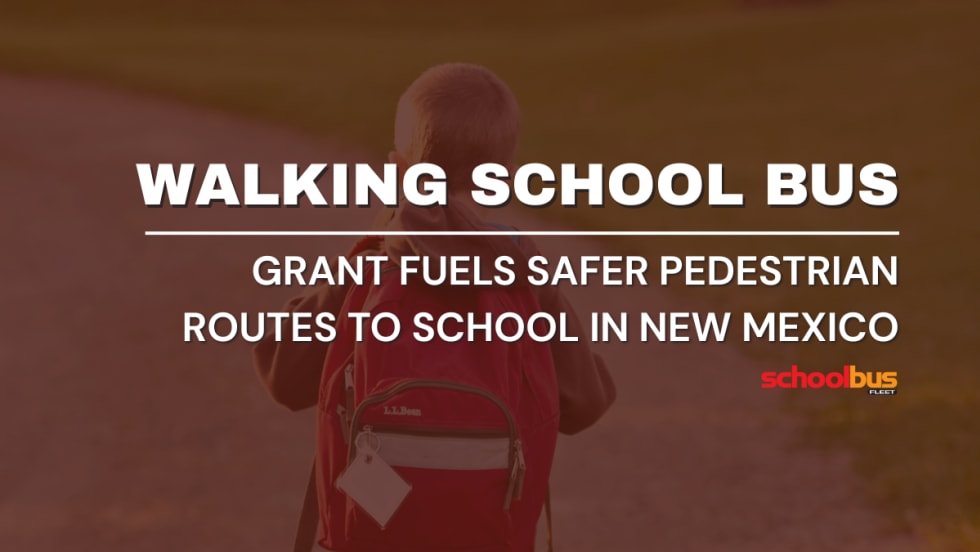From seat belts to special-needs transportation resources, legislation at the state and federal levels garnered a lot of attention during the past year.
We’re highlighting five stories about laws related to pupil transportation that clicked with School Bus Fleet readers:
Federal School Bus Seat Belt Legislation
Two U.S. senators - Sherrod Brown of Ohio and Tammy Duckworth of Illinois - put forward the School Bus Safety Act, which would include federal requirements for seat belts on school buses.
The proposed legislation was sparked by the death of an 11-year-old Ohio boy in August who was ejected from a school bus during a rollover crash after colliding with a Honda Odyssey.
It calls for:
A 3-point safety belt, including a seat belt across the lap and a shoulder harness to restrain passengers in case of collision.
An automatic emergency braking system, designed to prevent accidents and crashes by detecting objects or vehicles ahead of the bus.
An event data recorder (EDR) that can capture pre- and post-crash data, driver inputs, and restraint usage.
An electronic stability control (ESC) system that uses automatic computer-controlled braking of individual wheels to help the driver remain in control of the vehicle.
A fire suppression system.
A firewall to prevent hazardous quantities of gas or flame from passing from the engine to the passenger compartment.
The bill was introduced in September, but the Senate has yet to take any further action.
Evolution of Seat Belt Laws on U.S. School Buses
The journey of school bus seat belt regulations has involved a complex interplay of safety data, public perception, cost implications, and policy decisions.
This Editor’s Note details the history and the status of seat belt requirements on school buses in the United States.
California 2035 Zero-Emission School Bus Mandate
Gavin Newsom wants all newly purchased or contracted school buses to be zero-emission vehicles, with potential extensions for districts meeting certain conditions.
In October, the California governor signed into law Assembly Bill 579, saying: “Signing this bill demonstrates our state’s commitment to maintaining a healthy environment for our children through improved air quality. California is steadfast in supporting a smooth and successful transition to zero-emissions vehicles, including school buses.”
Federal Jackie Walorski END Illegal Passing Act
Inspired by the efforts of the late Rep. Jackie Walorski of Indiana, new legislation has been introduced in Congress to battle illegal school bus passing.
The legislation would establish a program to monitor and gather data on incidents of illegal school bus passing, create a messaging campaign, develop training materials, and model legislation to reduce these increasing incidents, which can happen an estimated 41.8 million times during a 180-day school year.
“Illegal passing continues to occur across the country at an alarming rate and the Jackie Walorski END Illegal Passing Act represents a vital component in the quest to curb this epidemic,” said Carina Noble, who was then president of the National School Transportation Association (NSTA).
Introduced in June, but no further action taken at this time.
New Jersey Affordable Private School Transportation Legislation
New Jersey Senate considered a law allocating resources to private school students with special-transportation needs.
The bill, sponsored by State Sen. Robert Singer, was designed to help nonpublic school students receive reliable busing services. The law passed on third reading.
The fiscal estimate indicates that the legislation “will result in an indeterminate increase in State costs associated with the creation of consortiums for nonpublic school transportation. The magnitude of the cost increase would depend on the number of consortiums created and the cost per pupil of providing transportation for each consortium.”
The state’s Office of Legislative Services estimated a ballpark cost of $12.1 million in fiscal year 2024.




